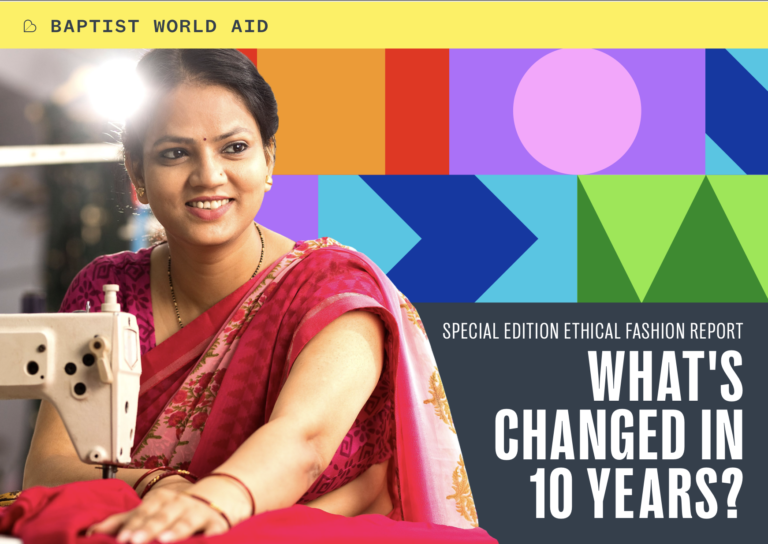A LOT CAN CHANGE IN A DECADE. FOR BETTER, AND FOR WORSE.
Ten years ago, in the early hours of April 24, 2013, a garment factory in Dhaka, Bangladesh, crumbled. Within its walls were thousands of workers, many of whom never returned home to their families that night.
Over 1,130 workers perished in the collapse, with thousands more critically injured. As labels of well-loved brands surfaced amongst the dust and rubble, consumers and brands around the world awoke to the daily reality facing the people who make our clothes. This tragic incident catalysed a new wave in the ethical fashion movement.
Fast forward a few months, and Baptist World Aid released its very first edition of the Ethical Fashion Report.1 During this critical time, the report placed a spotlight on what Australian fashion companies were (or weren’t) doing to protect and empower their supply chain workers. And findings were pretty grim.
A decade on, the report’s findings are as pertinent as ever. The Rana Plaza collapse was one of the deadliest industrial accidents in recent history, but it wasn’t the last. Scores of factory fires and building accidents have occurred since, affecting the lives of thousands. Beyond safety incidences, exploitation in the fashion industry is woven deeply into the system as workers face abuse, harassment, discrimination, unliveable wages, and polluted environments. Scattered throughout this report, you’ll find excerpts from stories of real-life garment workers who face these issues daily. Workers like Alaya, Nargis, and Layla2 are the reason the Ethical Fashion Report exists.

